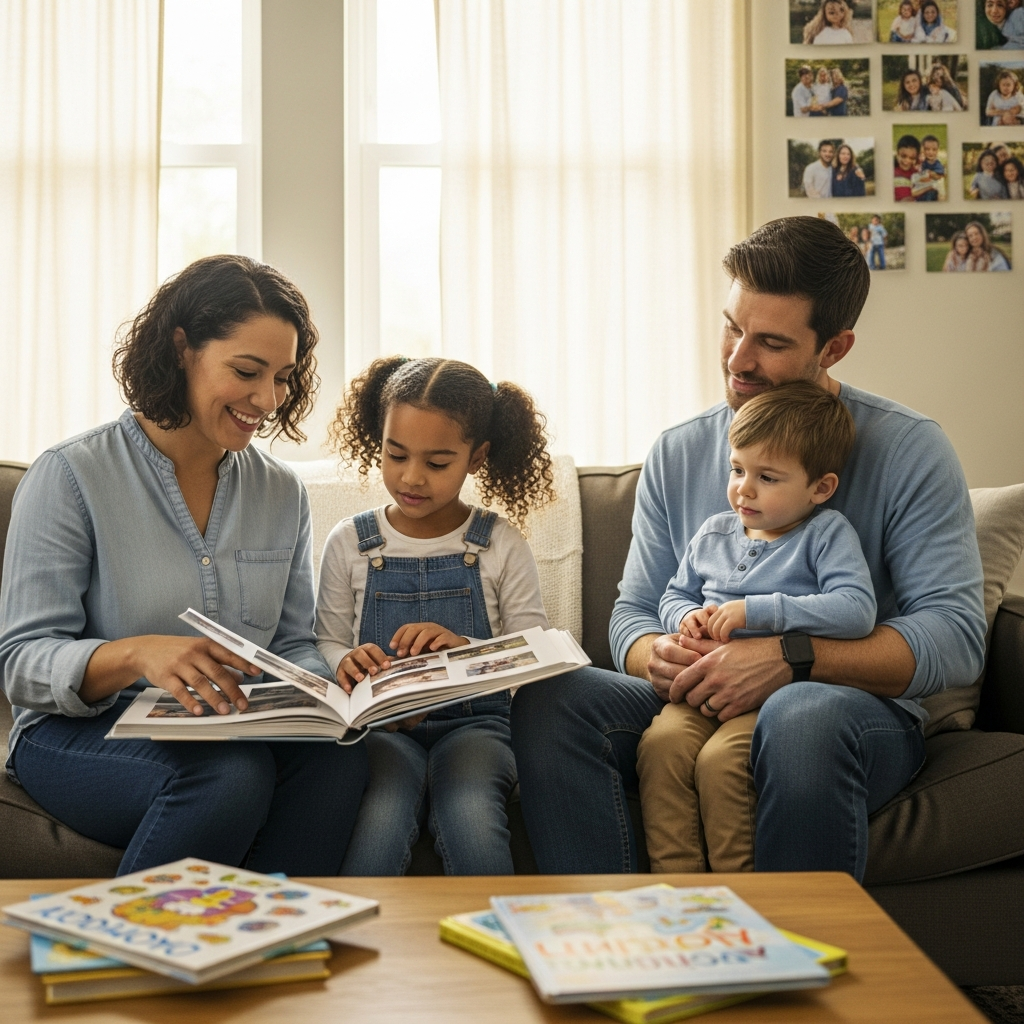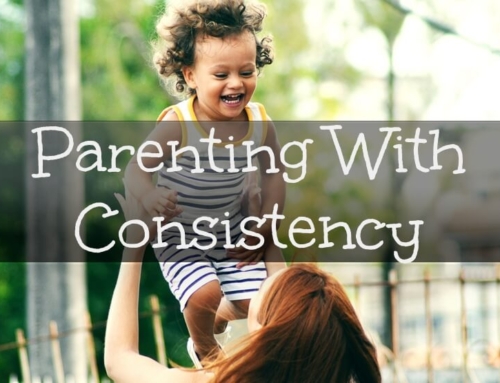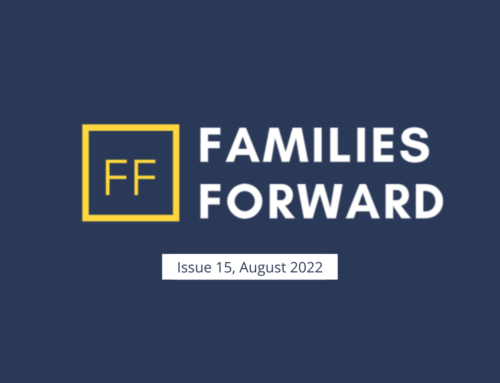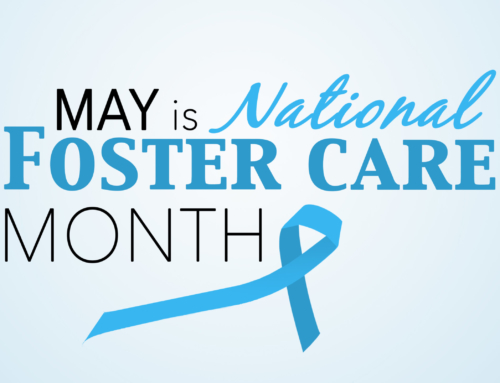It's important to inform children that they were adopted and what adoption means. But when should these conversations start? Does it have to be a big sit down conversation? What should I mention? Should I leave any parts of their story out? Read on to learn how to best talk to your adopted child about adoption.
Infancy
Begin talking to your child on day one, when they are an infant. The longer you wait to talk about it, the harder it will be to start the conversation. So start while they are young! Tell them their story while you change their diaper or are rocking them to sleep. They obviously won't understand what you are saying, but it will help you get familiar and comfortable with telling their story and talking about adoption.
Incorporate books about adoption into your reading routine and leave them on their bookshelf so they can flip through them when they are beginning to explore books.
Say the word "adoption" around the house so that it is a familiar word. This way, your child grows knowing this topic is safe to talk about in their home and with you.
Begin making a Lifebook or journal to document the adoption process. Record important dates and steps. Include pictures of places and people involved in their early life. For open adoptions, include pictures of their birth family. For international adoptions, include a map or pictures of their birth place. These same photos can also be hung up in their nursery or playroom for constant visibility.
Toddler / Preschool
Children at this age are observant and begin to notice differentiating details such as skin or hair color. Children at this age have a short attention span. Simple, honest answers will be most effective.
They are learning that babies come from mommies "tummies" and want to know how this relates to their world. They should be told that they grew inside their mommy's "tummy" just like everyone else and didn't just appear into the world.
At this age, you can define "adoption" as a family who chooses to bring a child into their home and love them just like their own. Adding that adoptive parents love their children very much and want to give their children a family and take care of them for forever. Toddlers and preschoolers often accept what their parents tell them. It is helpful to be open, factual, willing to talk, and proud of the adoption.
They may be curious to hear stories about their birth and how they came into the family. Share how excited you were to meet them and bring them home! Be prepared to repeat this story, youngsters love repetition and stories about themselves.
Answer their questions honestly and age appropriately. Emphasize love, security, and how they belong in the family to create a sense of belonging and reassurance.
Reassure them that being adopted doesn't make them different from any other child, the story of how they came to be with their parents is just unique.
Preschoolers are self-centered, thinking the world is all about them. They need to know that being placed away from their birth parents was not their fault and did not happen because they were "bad".
Teach your child that the words "mother", "father", and "parent" have more than one meaning. For instance, a mother is not only someone who gives birth to a child but also someone who loves, nurtures, and guides a child to adulthood.
Talk about different ways families are and can be formed such as single parent, two moms, two dads, being raised by grandparents, siblings or no siblings, pets or no pets, adoption.
Common Questions & Suggested Responses
At this age, children will begin asking questions. Remember to always talk respectfully about their adoption, pre-adoption life, and biological family. Here's some questions they may ask you and how you can respond to them:
-
"Why don't I look like you?"
"Children usually look like the parents who gave birth to them. Your mommy had ____ skin color, ____ eye color, and ____ hair color. You look like her because she is your birth mom. I have ____ eyes and ____ hair because grandma is my birth mom".
-
"Why didn't I grow inside your tummy?"
"You grew inside ____'s tummy. I wish you could have grown in mine but I'm glad you grew in ____'s tummy because I like you exactly the way you are"
-
"Why did you adopt me?"
Gently tell your adoption story, "I wasn't able to grow a baby in my tummy but mommy and daddy really wanted to have a child/baby to take care of and we are so happy to have you"
Or "mommy and daddy wanted to help children whose birth parents could not take care of them. We are so happy to have you and love you very much."
-
"Why didn't my birth / first mommy keep me?"
Depending on what you know: "___ and ___ weren't ready to be parents when you were born",
Or "__ and __ didn't have enough family to help / food / a home / money to take good care of you"
Or "your birth parents were having hard problems of their own and could not take care of a baby when you were born"
-
"What do my birth parents look like?"
Share photos if you have them!
If you don't know: "I'm not exactly sure. But I think they were so pretty / handsome. I bet she has ____ skin just like you with _____ hair just like you. Maybe you and I could go draw a picture of what we think they look like"
It's tempting to tell children that they were adopted because you "chose" them or because they were "special". This is a lot of pressure on a child especially when they begin to realize that being perfect is unattainable. They may wonder why they were "chosen" instead of a different baby and wonder what makes them SO special.
With regard to harder details of their adoption, for instance if they were conceived out of sexual assault, their birth parents were in jail, their birth parents were addicted to substances, these should not be kept from the child forever, but also not shared at too young of an age. Lay the ground work for parts of their story that you are able to share and discuss the rest when it is age appropriate.
Telling a child that they were "given up out of love" can be confusing and make them wonder what love really is and if you or others will "give them up out of love" one day. Instead try saying their birth parents "made an adoption plan" or "placed them for adoption" or "your birth parents were not able to take care of you as a child, so a judge / they made sure you had a family who could love you and take care of you."
Even if your curious young child is not asking questions about their adoption, it's still important to talk about it. They have the right to know that they were adopted and that adoption is a normal and acceptable way to grow a family. They need to be reassured that there was nothing they did that caused them to be placed for adoption noting that adoption doesn't happen because of a child's good or bad behavior. If a child has been through hard times, they may internalize this and feel that they are to blame or feel that something is wrong with them. Mention that the choice to have them be placed for adoption was a decision made by adults or grown ups.
Speak positively about their birth parents even if this is not how you truly feel. Criticism of a birth family can be internalized as a critique of the child. Separate the birth parents from their behavior so that the child does not feel that he is bad because the birth parents did "bad" things.
Media for Toddlers / Pre-School Aged Children
- Dinosaur Train (TV show)
- Doc McStuffins (TV show, biological children, infant adoption)
- Big Brother Binkey – Arthur (movie format, international adoption)
- Sesame Street (has a character who was adopted)
- Books
School Aged Children
Continue using the word "adoption" in the household and begin gradually adding in more details about their adoption story
Give them space to process their emotions if needed, and encourage open communication along the way. However, don't force conversations. Throw out an opener and allow your child to decide how far the conversation will go.
Between 6-12 years old, children begin to fully grasp the meaning of adoption. They understand both the joys and gains in adoption but also the loss and sadness of being relinquished. Relinquishment for any reason can feel like rejection.
School-aged children may begin to be more influenced by their peers. Some peers may ask them about their adoption. Let you children know they have the choice to talk or not talk about their adoption. Be ready to handle and step in if they are teased about their adoption / racial / physical differences.
Ideally, your child should know their full story by the time they are cognitively 12 years old. This includes why they were placed for adoption even if it is not pretty (no support system, single parent, homeless, drugs / alcohol, jail, domestic violence, incest / sexual assault). This information is part of their story and belongs to them, even if you wish you could erase it. Adopted people have the right to all of their story. We as parents don't get to pick and choose what they need to know; it is information that belongs to them. Your child will likely find out about their story anyway, for instance through reunification or getting records from their adoption agency as an adult. Ask yourself if you would rather be the one to tell them this difficult information. Do you want your child to feel like you lied to them by keeping this important information from them? It is your job as a parent to calmly and with compassion help your child understand these things that happened to them or to their birth parents.
Talk positively about your child's birth parents. Separate them from their behavior that the child does not feel that they are bad because their birth parents did "bad" things while not discounting the bad things. Most children will understand that parenting is difficult, not everyone who gets pregnant will become a good parent, and that addiction is a disease.
Adoption dialogue at this age sets the tone for future interactions and feelings. If an adoptive parent is closed off, annoyed, or angry about questions their child asks, it could lead them to turn to other sources of information such as friends, other adults, or the internet. If you want to remain a primary source of information and perspective, you'll need to have an open and honest dialogue from the start and ensure your child feels comfortable talking to you.
Be a trusted resource for your child. Provide accurate information, listen to their questions and concerns, and answer in a way that matches their maturity level. If you don't know the answer, admit it and if possible, try to find the answer. Share your efforts if you are unable to get an answer. This lets them know you are a trusted resource to come to for questions.
Don't take their natural curiosity personally. Almost everyone is curious about their roots, where they come from, and who they are. Consider how many non-adopted people have done 23&Me or Ancestry DNA to learn more about their own history.
Media Suggestions for School Aged Children
- Full House (TV show)
Watch with your child and note that their family is "untraditional" and the children are not being raised in a typical mother / father household. Reiterate that all families look different and that this is ok.
- Stuart Little (movie)
Watch with your child and talk about Stuart's feelings about him wanting to know more about his biological family. Ask if your child wishes to know more about their birth family.
- Annie (movie)
Watch with your child and ask if they think about their biological family and what their feelings are about them and about being adopted.
Teenagers
All teenagers are learning their identity: "Who am I?" "Where do I fit in with the world?" There is an extra layer when a teen was adopted. School assignments on biology or family relationships can raise issues on identity.
They are learning to separate themselves from their parents and for adopted children this means 2 sets of parents. At this time, some teens may become more interested in their personal history and birth parents.
Thoughts about birth parents may make teens feel disloyal to their adoptive family. This guilt can make adoption conversations with parents extremely uncomfortable. Tell your teen that you are open and willing to talk about adoption. Attempts may be rejected because teens can perceive personal questions as intrusive, but you may get credit for trying. Share that you will support them if they chose to search.
When approaching conversations with your teen think about what times of day or settings where they are most open to talking (perhaps on a car ride when there is not direct eye contact or after school after they have had some time to relax).
Listen and pay full attention when they want to talk. Consider your non-verbal cues (facial expressions, crossed arms, eye contact, distractions).
Communicate respect for your teen's feelings and that you value their opinion. This rule applies to all situations with teens, but especially when discussing adoption. They will be watching for signs that you are uncomfortable or disapproving.
Adopted teens may not be able to articulate what they are feeling, even to themselves. They may experience sadness or anger without really knowing why. If needed, have them see an adoption therapist to process their emotions.
Thoughts and Questions About Permanency, Identity, and Loyalty
Adopted teens may have these thoughts:
- "I'm not like most kids — my family is different."
- "I don't share my family's cultural or racial heritage." / "I don't look like my family."
- "Why was I given away? Was something wrong with me?"
- "My birth parents used drugs, abused or neglected me, had an unplanned pregnancy etc. What does this mean about me?"
- "Why couldn't my birth parents solve their problems and keep me?"
- "Who am I? Am I more like my adoptive parents or birth parents?"
- "How can I figure out who I am when I don't know much about my birth parents?"
- "I'll upset my adoptive parents if I ask too many questions about my birth parents."
- "I worry about my siblings who are in different placements."
- "If my birth parents gave me away, will my adoptive parents give me away too?."
- "I'll be 18 soon. Will my parents still be there for me after I leave home?"
Be prepared to openly and honestly discuss abstinence, birth control, abortion, adoption, parenting and more with your teen.
Note that just because people have sex, doesn't mean that they are ready for pregnancy and parenting and what this means. Include talking about the choices of adoption and abortion. Note that some pregnancy people do not have a support system, stable housing, or finances to parent. They may also have other children that they are trying to parent and cannot take on another child.
Have conversations about staying away from substances and jail, especially if their birth parents had substance issues.
Talk to them about how making an adoption plan isn't easy. There is grief and loss involved and it's not a simple choice.
Reiterate that adoption is a permanent choice. It is a family relationship and bond that is intended to last for a lifetime.
Media for Teenagers
- Instant Family (movie, being adopted from foster care with siblings)
- The Lost Child (movie, journey to find biological parents)
- Mother and Child (movie, 3 perspectives - birth mother, adoptee, and adoptive family)
- The Fosters (TV show, about foster and adopted teens)
- 16 and Pregnant (TV show, seeing the impact placing for adoption has on biological parents)
- Catelynn and Tyler season 1 episode 6 / Teen Mom
- Lori, season 2 episode 5
- Ashley, Season 2 episode 21
- The Primal Wound (book by Nancy Verrier)
- Journey of the Adopted Self (book by Betty Jean Lifton)
Additional Advice
Adoption is a life-long process. These conversations need to be revisited by parents and children as the children age and their understanding grows.
Meet other adoptive families! This normalizes your family to your child and gives everyone someone else to talk to who understands their unique situation.
Join support groups or online groups to hear advice from other adoptive families.
Get help when needed. There is no shame in asking for help if you or your child is struggling. In fact, this teaches your child a valuable life lesson: strong, smart people get help.
Find an Adoption Therapist: https://creatingafamily.org/adoption/resources/finding-adoption-therapist/
Resources
"Talking about Adoption Part 1: Talking With 0‑5 Year Olds." Creating a Family, 26 Aug. 2014, creatingafamily.org/adoption-category/talking-adoption-part-1-talking-0-5-year-olds/.
Singer, Ellen. "Talking with Your Adopted Teen: It's Possible and Important." Families Rising, 2002, wearefamiliesrising.org/resource/talking-with-your-adopted-teen/.
"Talking to Children About Adoption: 14‑16 Years Old." Adoption Network, adoptionnetwork.com/adoptive‑parents/parenting/talking‑about‑adoption/14‑16‑years‑old/.
"Talking About Adoption: Tips for Having Meaningful Conversations with Your Child." Blog: Families Forever, Nebraska Children's Home Society, 4 Jan. 2024, blog.nchs.org/talking-about-adoption-with-your-child.
Severson, Randolph W. "Talking to Your Adopted Adolescent about Adoption." Pact, An Adoption Alliance, 11 Jan. 2021, pactadopt.medium.com/talking-to-your-adopted-adolescent-about-adoption-ddf3840bf8cd.
"When and How Should You Talk About Adoption with Your Children?" DPA Blog, Deaconess Pregnancy & Adoption, 15 Dec. [year not given], www.dpaok.org/dpa-blog/when-and-how-should-you-talk-about-adoption-with-your-children.
"Adoption Guidelines for Parents." Complete Care for Kids, Complete Care for Kids, [Publication Date], completecareforkids.org/Adoption‑Guidelines‑for‑Parents.









